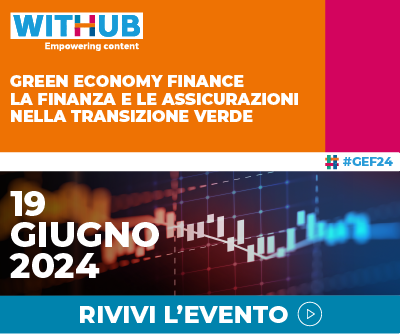From the correspondent in Strasbourg – When Ursula von der Leyen commissioned Mario Draghi in September to write a report on the future of European competitiveness, it was precisely so that the former ECB governor would expose all the flaws in the EU bloc. The words with which Draghi—who weighs his words carefully—harangued the economy ministers of the 27 countries last week then sounded like a verdict: “Please do something, you choose what, but you can’t spend more time basically saying no to everything“.
He told this himself today (Feb. 27) during a discussion with the chairs of the European Parliament committees in Strasbourg.. the last scheduled visit after meetings with the EU Commission and Council. As learned by Eunews, the former Italian premier pointed to a two-ingredient recipe: reforms and investment. “Money is only one aspect of the problem,” Draghi explained. The other aspect is a deep revisiting of the rules we have built and worked on.” Structural reforms, starting with a highly imperfect single market, in which “hundreds of directives coexist that are not implemented, or are implemented differently in different countries.”
But there are problems everywhere, and an example is the electricity market. “Europe cannot be competitive if we pay three times more for electricity than in the United States and five to six times more for natural gas than in other areas of the world,” Draghi pressed again. The EU is also lagging culpably behind on strategies to stimulate private investment in research and innovation: the former premier looks to his Atlantic ally and sees that “in the US, two-thirds of investment in research is private, in the EU it is public.” He asks the chairs of the parliament committees, “How can our institutions mobilize better public spending to support private investment in the innovators driving the double transition?”

And how to fill “the skills gap in Europe”? These are the challenges Draghi analyzes in his report. Three converging trends are forcing the European Union to “reflect on how to strengthen its competitiveness in the long run”: the rapid acceleration of digitization, climate change, and a geopolitical environment increasingly characterized by a trend toward conflict.
Draghi’s snapshot is that of a Union squeezed between deep-tech innovation that “continues to disrupt the organization of work and its role in stimulating productive growth,” a climate change that “is bringing our natural ecosystem to a tipping point, forcing everyone to act to accelerate the clean transition,” and a globalization in which the “anti-competitive practices of some of our competitors continue to undermine the global level playing field and the EU’s open strategic autonomy.”
An earful, a bath of realism that is only the incipit of the report Draghi is expected to present to the heads of European institutions before the end of the legislative term. “These trends call for a comprehensive reflection on the levers to revive European competitiveness, including the tools available to our institutions,” insisted the former European Central Bank governor, closing with a warning: “Rethinking our economic policies to increase productivity growth and competitiveness is essential to preserve Europe’s unique social model.”
English version by the Translation Service of Withub

![Draghi saluta l'Ue. "Dobbiamo essere ottimisti per il futuro dell'Europa" [Bruxelles, 21 ottobre 2022. Foto: palazzo Chigi]](https://www.eunews.it/wp-content/uploads/2022/10/WhatsApp-Image-2022-10-21-at-15.49.18.jpeg)




![[foto: European Institute for Gender Equality]](https://www.eunews.it/wp-content/uploads/2021/03/gender-pay-gap.jpg)
